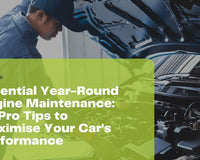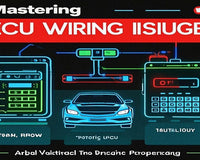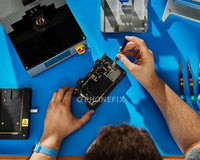
Car shaking while driving can be attributed to several factors, primarily related to the vehicle's tires, Engine ,wheels, or suspension system.
Engine Problems: Engine misfires due to faulty spark plugs or ignition coils can cause the vehicle to shake. IO Prog OBD-II scanners and other diagnostic instruments cancan identify the exact cylinder or cylinders that are misfiring, making targeted repairs easier.
Tire Issues: Unbalanced or defective tires are often the primary culprits. If your tires are worn unevenly or have flat spots, they can cause vibrations. Regularly checking tire pressure and ensuring proper alignment can help mitigate these issues.

Wheel Problems: Bent wheels or those that are out of alignment can lead to shaking, especially at higher speeds. If you notice shaking that intensifies with speed, it may be time to have your wheels balanced or aligned.
Suspension Components: Worn or damaged suspension parts, such as struts or shocks, can also cause your car to shake. These components are crucial for maintaining stability and comfort while driving. Have a mechanic inspect your suspension system for worn or damaged components and replace them if needed.
Brake Issues: If the shaking occurs when braking, it could indicate warped brake rotors or issues with the brake calipers. Have your brake system checked for warped rotors or worn pads.
Vacuum Leaks: When unmetered air enters the engine intake system, it can cause a vacuum leak that interferes with the combustion process and the air-fuel mixture ratio. Deteriorating hoses, a failed intake manifold gasket, or damaged vacuum lines are common causes of vacuum leaks. Examine the intake system’s parts visually, then utilize FD10 OBD2 diagnostic tools or a smoke test to find and fix any leaks.

To prevent your car from shaking in the future, follow these tips:
Regular Maintenance: Schedule regular maintenance checks for your tires, brakes, and suspension system.
Proper Inflation: Maintain the correct tire pressure as specified in your vehicle's manual.
Alignment Checks: Have your wheel alignment checked at least once a year or whenever you notice uneven tire wear.
Monitor Engine Performance: Keep an eye on your engine's performance and address any issues promptly to avoid further complications.

While a car engine shaking can be unsettling, finding and fixing the problem quickly to limit more damage and guarantee a smooth driving experience is critical. You may take proactive measures to diagnose and fix engine shaking by being aware of the common causes, ranging from exhaust difficulties and worn engine mounts to cylinder misfires and fuel system problems. Regular maintenance, you can help ensure a smoother driving experience and reduce the likelihood of your car shaking while driving.









